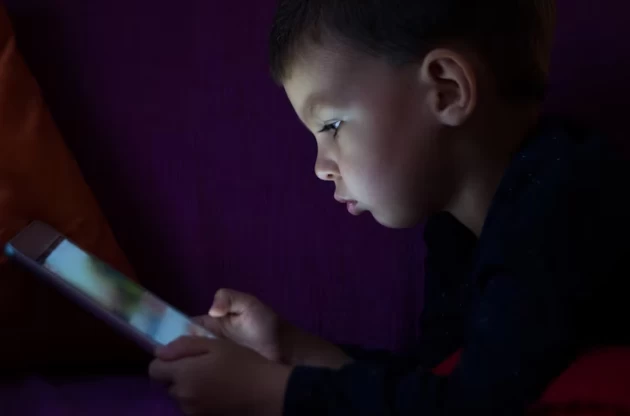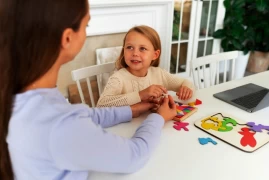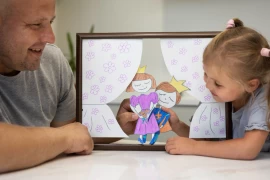
Masturbation in Early Childhood: Evaluation from a Psychological Perspective
- Masturbation in Early Childhood: Evaluation from a Psychological Perspective
- Children's Sexual Development
- Is Masturbation in Early Childhood Normal?
- How Should Parents Approach This?
- Professional Assistance
- In Conclusion
Understanding and guiding children's experiences related to sexuality is a topic that requires sensitivity and knowledge on the part of parents and professionals. Masturbation in early childhood can be a natural and normal behavior as part of a child's introduction to sexuality. However, it is important to address this behavior in a way that is appropriate for the child's age, developmental level, and environmental factors.
Children's Sexual Development
Children's sexual development begins from the moment they are born. Sexual development refers to the process of increasing awareness of sexuality on physical, emotional, and cognitive levels. This process involves the child exploring their body and their surroundings. In early childhood (ages 0-6), children are in a phase of curiosity and exploration, and discovering their own bodies is a part of this phase.
Is Masturbation in Early Childhood Normal?
The topic of masturbation in early childhood pertains to addressing a child's sexual development and exploration. Masturbation involves seeking sexual pleasure through stimulation of the genitals. However, behaviors such as touching, rubbing, or manipulating their genitals that young children may exhibit are generally considered innocent and curiosity-driven.
In early childhood (ages 0-6), children are in a phase of exploring the world and their own bodies. Sexual behaviors during this period often arise as part of a curiosity and exploration process that is not necessarily tied to sexuality. Children's attempts to explore their sexual organs or engage in related behaviors are reflections of their need to acquire knowledge about sexuality and develop awareness of their bodies.
Parents should not worry if they notice such behaviors in their children; instead, they should approach the topic calmly and help the child understand that this is a normal part of exploration. It is important to answer the child's questions about sexuality and provide accurate information without inducing shame or guilt.
However, while these behaviors are generally normal and innocent, if a child's sexual behaviors become distressing or intense, seeking guidance from a child psychologist or doctor might be a good idea. Experts aim to assess the child's behaviors and guide the family to support the child's healthy sexual development.
In summary, during early childhood, a child's exploration or manipulation of their sexual organs can be considered a normal part of the exploration process. Providing children with accurate information and support, both from parents and professionals, can help them develop a healthy sexual identity.

How Should Parents Approach This?
When faced with situations involving sexual exploration behaviors like masturbation in early childhood, it is important for parents to approach the situation carefully. Here are some key points to consider when dealing with such situations:
- Stay Calm and Understanding: When you notice a child's sexual exploration behaviors, remain calm and understanding. Instead of worrying or panicking, try to address the situation in a calm manner.
- Create a Special Time to Talk: Find a special moment to talk about the child's sexual exploration behaviors. Bringing up the topic when the child feels comfortable and safe can help them ask questions more easily and allow you to approach the topic openly.
- Use Correct Terminology: Provide information about sexual organs using anatomically correct terms. When answering the child's questions, use simple and understandable language to explain sexuality without creating embarrassment.
- Emphasize Normalcy: Stress that sexual exploration behaviors are normal and natural. Explain to the child that their curiosity and exploration of their body are healthy.
- Respect Privacy and Boundaries: Teach your child to choose a private time and place for satisfying their curiosity about their own body. Explain that such behaviors might be more appropriate in their own room or in the bathroom.
- Be Honest: Provide honest answers to your child's questions, but do so in a way that is suitable for their age. Give accurate information without exaggerating or going into unnecessary details.
- Teach About Privacy: Teach your child that touching others' private parts is a special and private behavior. Explain the importance of boundaries and respecting others' personal space.
- Seek Professional Help: If your child's behaviors become intense or worrisome, or if you are concerned, consider seeking help from a child psychologist or expert. Professionals can guide both the child and the parents through this process.
Professional Assistance
Remember that each child is unique, and their sexual development process can differ individually. If parents feel that their child's behaviors are crossing boundaries or if they are concerned about their child's behaviors, it is important to seek help from a child psychologist or expert. Professionals can assess the child's sexual development and provide appropriate guidance to the parents.
In Conclusion
Masturbation in early childhood can be considered a normal part of a child's sexual development. Parents and professionals should approach children sensitively to help them understand and support their sexual development. If parents have any concerns, seeking expert advice can be beneficial. Regardless of the situation, respecting the child's privacy and psychological well-being is crucial.






